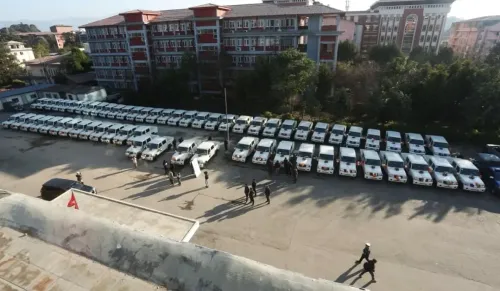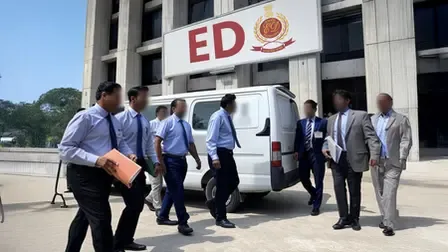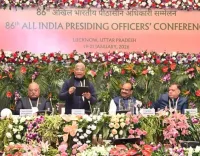How Will the APEC CEO Summit Tackle Protectionism?

Synopsis
Key Takeaways
- The APEC CEO Summit aims to address the challenges of protectionism.
- 1,700 participants will engage in discussions on global trade.
- Significant talks between the U.S. and China are anticipated.
- Cooperation between South Korea and Japan is essential for economic stability.
- Investments in AI are crucial for future growth.
Seoul, Oct 26 (NationPress) SK Group Chairman Chey Tae-won stated on Sunday that the forthcoming business conference aligned with the Asia-Pacific Economic Cooperation (APEC) summit in South Korea will present a chance for international firms to explore methods to combat protectionism.
"The APEC CEO Summit will function as a platform where 1,700 participants will search for solutions in this age of protectionism," Chey, who also leads the Korea Chamber of Commerce and Industry (KCCI), remarked during a collective interview with YouTube channels, as reported by Yonhap news agency.
The KCCI will organize the APEC CEO Summit from Tuesday to Friday in Gyeongju, roughly 275 kms southeast of Seoul, coinciding with the APEC summit that will gather delegations from 21 member economies.
Chey emphasized that the APEC summit is particularly crucial as it will provide insights into how tensions between the United States and China might develop in the upcoming years.
"The leaders of APEC nations, including U.S. President Donald Trump and Chinese President Xi Jinping, are scheduled to engage in discussions on various topics," Chey stated.
Trump and Xi are anticipated to meet during the APEC event, marking their first encounter amidst escalating trade disputes.
Addressing the future of the South Korean economy, Chey underlined the necessity for Seoul to enhance collaboration with Japan to confront protectionism and economic division.
"Reviving free trade under the World Trade Organisation framework as it existed in the past is no longer feasible," Chey remarked. "The export-driven growth that has persisted since the 1960s is ineffective due to tariffs."
He added that South Korea and Japan could achieve an economy of scale by creating a market valued at US$6 trillion and jointly tackling external uncertainties.
To stimulate economic expansion, Chey stated that South Korea must increase its investments in the artificial intelligence sector.
"(The United States and China) will not cease their investment competition in the AI field," Chey noted, drawing parallels to the military spending rivalry between Washington and Moscow during the Cold War.
"Despite geopolitical uncertainties, we must persist in making essential investments," Chey added. "Lagging in the AI domain poses a significant threat, and we plan to maintain our investments in this area."










